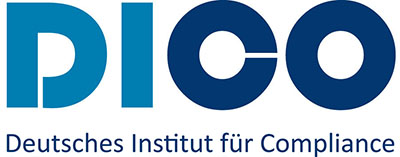Compliance as a LEADERShip task
The “Compliance as a leadership task” working group was established at the DICO Forum in 2016. The occasion was the workshop “Beyond Conventional Compliance – Compliance as a leadership task out of enthusiasm!”in which it was controversially discussed whether enthusiasm for compliance is even possible.
Enthusiasm is seen as a driving force for entrepreneurial success, as it promotes trusting cooperation, innovation and productivity. At the same time, compliance is often associated with terms such as Bureaucracy, concerns and costs although it is an indispensable component of entrepreneurial activity. Studies show that 50% of managers worldwide are willing to circumvent regulations to meet financial targets. In such an environment, it is difficult to get managers enthusiastic about compliance.
But this is precisely where the working group comes in: With methods, strategies and approaches specially tailored methods, strategies and approaches tailored to managers, the aim is to anchor compliance as an integral part of corporate decision-making.
Compliance as a self-leadership task
Every successful manager starts with leading oneselfto fulfill their role model function. Compliance is therefore not only a corporate requirement, but also an individual responsibility. Every employee embodies the company’s values and lives its compliance culture.
The working group also supports compliance officers to integrate managers more closely into the compliance system and increase their acceptance and motivation for this topic.
If managers are not necessarily enthusiastic, but at least have a deep conviction of the the necessity and indispensability of compliance this is already a significant success.
Ultimately, the aim is to view compliance not as a purely regulatory instrument, but as the basis for sustainable business success and competitive advantages. competitive advantages.
Main topics of work
Topics in the FOCUS:
The working group focuses on the following key issues:
Taking stock: the attitude of managers towards compliance
- What do managers think about compliance and what are the reasons for their attitude?
- What are the practical implications of their attitude?
- How does the attitude of managers influence the behavior of employees?
Anchoring compliance as a leadership task
- How can the attitude of “compliance as a leadership task” be consolidated?
- When and how does compliance become a leadership task?
- What obstacles stand in the way of this goal?
- How can compliance for managers become a personal advantage become?
- How can we recognize that compliance is actually perceived as a leadership task?
Initiating cultural change among managers
- How can the desirable attitude of managers be sustainably shaped?
- What strategies are required to permanently establish compliance in the management culture?
- Do you need special methods and approaches to reach managers in the long term? If so, which ones are promising?
CONCLUSION
The aim of the “Compliance as a leadership task” working group is to make compliance an an integral part of good corporate governance to establish compliance. Managers should recognize that compliance is not an obstacle, but an opportunity. opportunity for sustainable success, trust in the company and long-term competitiveness.
The challenge lies in recognizing compliance not as a mere duty, but as a leadership task with strategic added value and ideally even to live it with enthusiasm.”
working group results
Members can find the complete documents in the DICO Sharepoint.
Working group LEADER

Georg Gößwein LL.M.
Founder of PLLOB Compliance GmbH
Attorney Georg GößweinLL.M. is an arbitrator, mediator, systemic organizational developer and member of the DICO Board of Directors. In 2019, after around 20 years in-house in mechanical and plant engineering, most recently around 6 years as General Counsel of an M-DAX company, PLLOB Compliance GmbH. It advises and supports companies strategically and operationally in the systemic development of their organization with regard to resource-saving, culture-building and sustainably effective (compliance/ESG) management systems. In particular, she uses the PLLOB® decision heuristic. Sustainable (self-) leadership is thus implanted in the DNA of the organization based on values rather than rules. George Gößwein publishes regularly in the field of compliance and good corporate governance.

Gernot Tölle, LL.M., MBA
Compliance Officer at Vita34
Gernot Tölle is Head of Legal & Compliance at the FamiCord Group, a Prime Standard-listed company in the pharmaceutical/healthcare industry. He holds an MBA in “Governance, Risk, Compliance & Fraud Management” and is an “ACFE Certified Fraud Examiner”. Gernot Tölle is also a mediator, coach and organizational developer. After around 16 years in the field of law and compliance in the rail industry, he moved to Bilfinger’s Compliance department in 2018, where, as Head of Awareness, Prevention & Antitrust, he oversaw the termination of the Compliance Monitorship and the Extended Deferred Prosecution Agreement with the US Department of Justice, among other things. Mr. Tölle was also Compliance Officer for Bilfinger’s corporate headquarters, the North America region and the Other Operations division and was responsible for the Group’s compliance training and compliance communication.
During his professional career, he has also led a large number of internal investigations. Gernot Tölle teaches Compliance & Corporate Governance in the MBA program at Dresden International University in Dresden. Mr. Tölle has been active in DICO since 2013 and was a member of the “Compliance Risk Management” working group for many years before joining the “Compliance as a Management Task” working group.
- 030 - 27 58 20 20
- info@dico-ev.de
